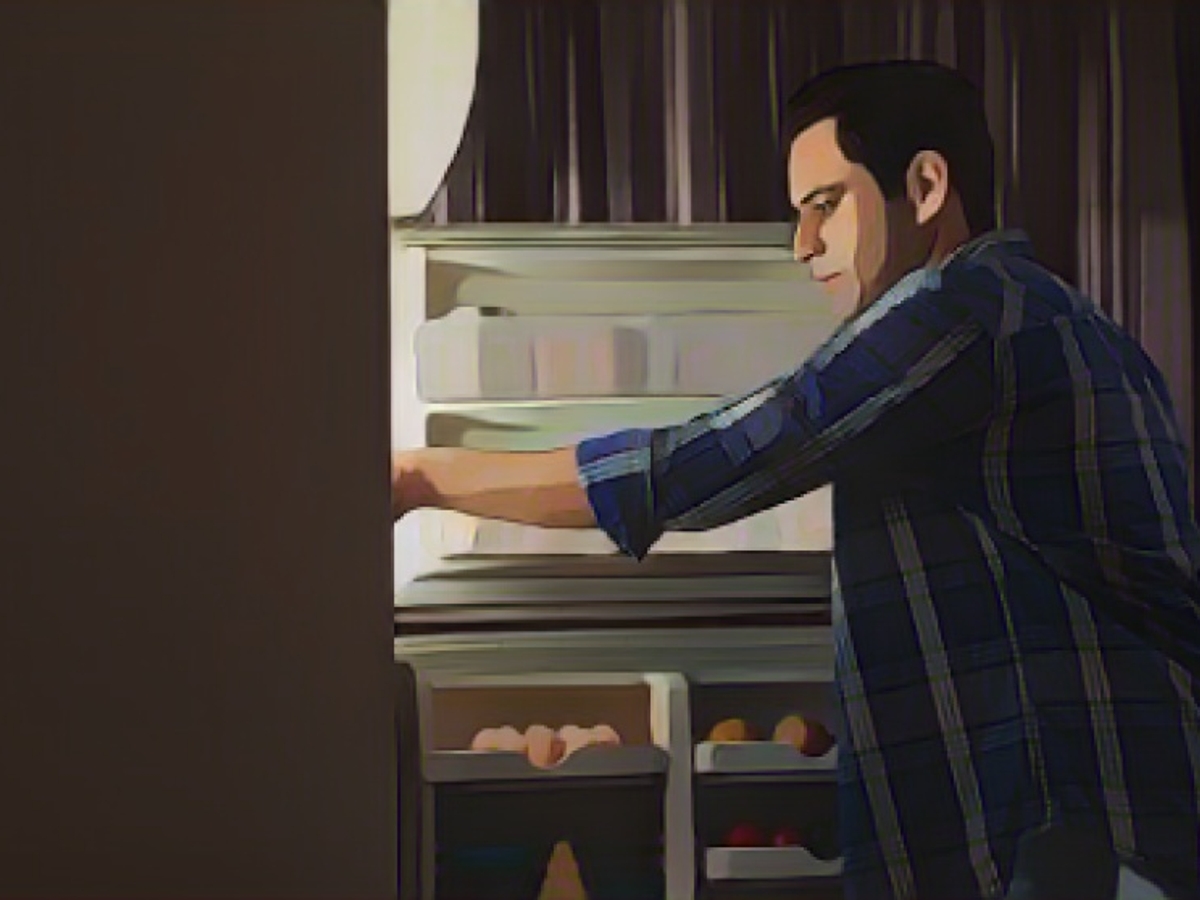Late-night munching might just be an eating disorder
But if your late-night snacking becomes the norm rather than the occasional indulgence, and you find yourself in the fridge in the dead of the night, it's time to pay attention.
This habit could be a symptom of an eating disorder - night eating syndrome. Around 1.5 million people worldwide are estimated to engage in this nocturnal snacking, according to Martin Teufel, the President of the German Society for Eating Disorders.
Is it always an eating disorder?
If you're regularly consuming at least 25% of your daily calories past your bedtime, you should consider seeking help. However, this definition is not set in stone. US psychology professor Kelly C. Allison suggests night eating syndrome could be present if you find yourself eating in the middle of the night at least twice a week for three consecutive months.
But keep in mind, this is just a guideline. Shift workers and those who don't get enough to eat during the day might also exhibit this late-night eating behavior.
Who's most at risk?
Estimates suggest around 1% of the population may suffer from night eating syndrome. With such a small number, it's safe to assume many cases go unreported because of a lack of awareness about the disorder.
Research indicates a connection between night eating syndrome and anxiety disorders, depression, and stress. Comfort eating is a natural response to distress, according to Anja Hilbert, Professor of Behavioral Medicine at Leipzig University Hospital.
Genetics may also play a role in night eating syndrome, as scientists have observed a familial clustering in its occurrence.
Men are more likely to develop this eating disorder than women, making it an exception in comparison to other eating disorders.
Why it's different from other eating disorders
Unlike many other eating disorders, night eating syndrome is characterized by an out-of-sync internal clock. The sleep-wake cycle and related hormones like ghrelin, cortisol, and melatonin are all believed to contribute to this condition.
When to seek help
If your late-night snacking is causing you psychological, physical, or social distress, it's time to see a healthcare professional. Signs of a potential problem could include feeling trapped, having difficulty sleeping, or developing a poor body image.
How can I get help?
Luckily, treatment options are available for night eating syndrome, such as psychotherapy and light therapy. The best approach depends on the individual patient. Consult your family doctor, and if you notice any weight gain, consider seeking nutritional advice.
If you're dealing with depression, you might be more susceptible to developing night eating syndrome. Mental health professionals can provide counseling and resources to manage your symptoms.
In cases of night eating syndrome, an Advisor like a healthcare professional or a psychologist can assess your unique situation and develop a tailored treatment plan.
- For those struggling with mental illness, such as depression, comfort eating can lead to the development of eating disorders like night eating syndrome.
- Those who are dealing with overweight or obesity may also have night-time binge eating, which could be a symptom of an eating disorder. Consulting a healthcare professional can help manage this issue.
- Night eating syndrome may be diagnosed and treated by a healthcare professional or psychologist, who can help identify underlying psychological components and provide appropriate treatment options, such as psychotherapy or light therapy.
Sources: &








